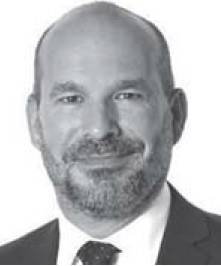Will COP26 drive everlasting change?
AS the world’s most influential climate change event takes place in Glasgow, the UN Climate Change Conference, some of the UK’s biggest voices in building and construction weigh in on what needs to change for the country to meet its net zero target.
The UK is the first major economy to put into law that it will reach net zero carbon emissions by 2050, and in line with this commitment, Mark Farmer, Yewande Akinola, Elspeth Finch, Mike Pitts and Ann Bentley share their thoughts on how best to drive the required change, creating a better world for both people and planet.
|
Projects from UKRI’s Transforming Construction Challenge pave the way to the industry’s future. Data is flowing through the industry and digital technology is accelerating change, demonstrating at scale the improvements in the build process and integrating renewable technologies at a building level. COP26 is the opportunity to share knowledge and skills between nations, to fast-track the UK to reaching net zero by 2050. Mike Pitts Deputy Challenge Director, Innovate UK |
|
I see the opportunity to unlock the innovation potential from SMEs to meet the net zero challenge, as the digital transformation in the infrastructure and construction sectors is happening at pace. There are new materials and technologies that can reduce emissions, resource consumption and costs. This means creating new partnerships with suppliers to build sustainable cities and business ecosystems that deliver a low carbon future for all. Elspeth Finch MBE CEO, IAN |
 |
 |
With COP26 upon us, increasing focus is being placed on how the UK is going to play its part on the international stage in attacking climate change. This narrative has to have a built environment decarbonisation strategy at its heart with 40% of all carbon emissions in some way linked to the construction sector. Six years on from the Paris Agreement, COP26 has to provide a turning point, not only for our planet, but for the industry as a whole. Once such government and industry-funded initiative, AIMCH, is already looking to create scalable industry-led solutions to reducing carbon emissions within homebuilding and is a great example of showcasing the UK as leading the way; however, the industry must continue to challenge itself, with improved resource efficiency and productivity central to fighting climate change. Mark Farmer CEO, Cast Consulting |
|
In the lead up to COP26, I am pleased that a day has been dedicated to the built environment. We are aware of the significant emissions that the built environment generates. My hope is that the discussions and debates help the collective design and construction industry understand how a cohesive approach can be adopted and deployed. We cannot afford to continue to consider architecture, design, supply chain and construction as separate entities in the push to tackle climate change. We also cannot afford to have ‘any single points of failure’ and as such all aspects of the built environment must be able to offer tangible progress. I suspect that there would be great concerns around remaining profitable as organisations evolve their delivery models to become more sustainable but hope that the concerns lead to conversations around the adoption and scaling of relevant technologies. Yewande Akinola MBE Innovation and Technical Lead Laing O’Rourke |
 |
 |
We all know that change needs to happen now, not in the future, when it comes to the sustainability agenda. In the construction sector we understand what we must do, we have clear government policy set out in the Construction Playbook and through the UKRI funded Value Toolkit we have a clear and consistent process for implementation. Instead of best practice and standardisation happening as the exception, now is the time to make them the norm then we will really advance towards our carbon zero goal. Ann Bentley Global Board Director Rider Levett Bucknall |